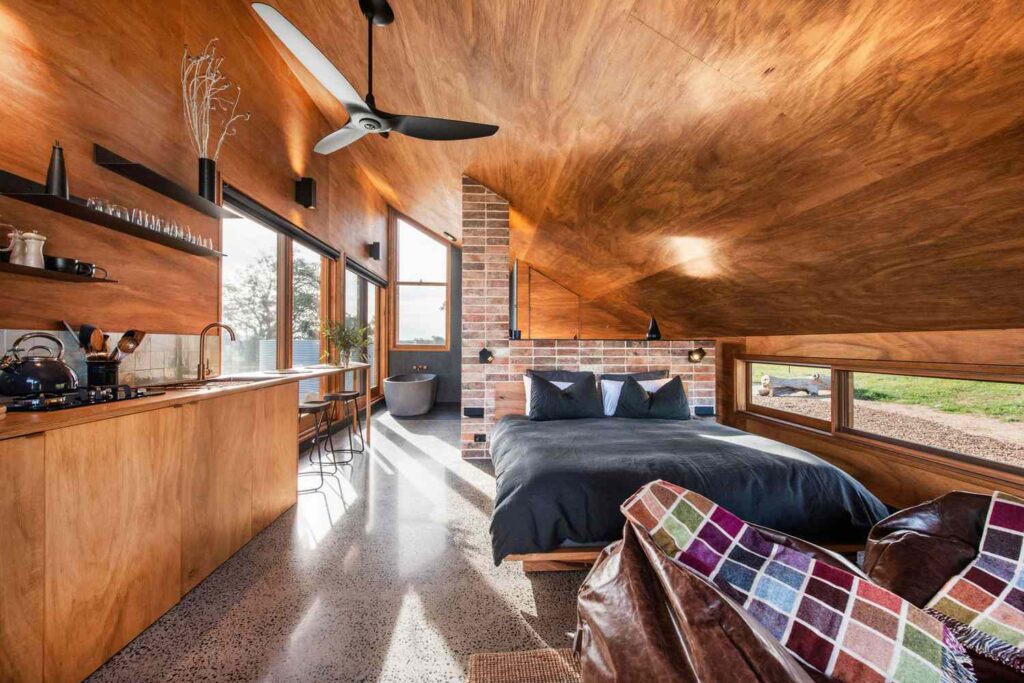Airbnb has revolutionized the way people book, travel, and invest in real estate. As an intermediary between hosts and guests, it offers a unique opportunity for homeowners and investors to convert their properties into profitable assets.
Thank you for reading this post, don't forget to subscribe!By leveraging Airbnb's extensive network, short-term rental property agents can help owners and rental property managers market properties to a global audience, ensuring higher occupancy rates and potentially greater returns.
Airbnb host fees, while seemingly straightforward, can impact the profitability of a short-term rental investment. For landlords and property investors, a thorough grasp of these costs is crucial to developing a sound financial strategy.
The fees not only affect the pricing of rentals but also play a critical role in maintaining a competitive edge in the bustling market of short-term rentals. Thus, for those embarking on or already navigating the Airbnb landscape, a comprehensive understanding of host fees is not just beneficial, it is essential for sustained success.
What are Airbnb Host Fees?

Airbnb host fees are charges levied by Airbnb on property owners for using the platform to list and rent out their short-term rental properties. These fees are a vital component of Airbnb's revenue model. They function as a service charge for the various amenities and support provided by the platform. They are deducted from the total booking amount before the payout is sent to the host, ensuring that Airbnb's operational costs are covered while facilitating the rental process.
Distinguishing between host fees and guest fees is crucial in understanding Airbnb's pricing structure. While host fees are incurred by property owners for the service of listing and managing their properties on the platform, guest fees are charged to the renters. These guest fees, often a percentage of the booking total, contribute to Airbnb's revenue and cover services like customer support and platform maintenance. This bifurcation in fee structure ensures transparency and fairness, enabling both hosts and guests to benefit from the services provided by Airbnb.
Breakdown of Airbnb Host Fees in 2024
In 2024, Airbnb offers hosts a choice between two primary fee structures: the split fee structure and the Host-only fee structure.
Split-fee structure: This structure involves both the host and the guest paying a service fee. Under this model:
- The host is typically charged a 3% service fee, although this can increase for Airbnb Plus hosts, rentals in certain markets like Italy, or for listings with a Super Strict Cancellation Policy. This fee is calculated from the booking subtotal, which includes the nightly rate and any optional extra charges but excludes Airbnb fees and taxes.
- The guest, on the other hand, usually pays a service fee of under 14.2%. The exact amount varies depending on various booking factors and is visible to guests during the checkout process.
Host-only fee structure: In this simplified structure, only the host is charged a service fee, while the guest incurs no additional Airbnb service charges. The host-only fee typically ranges between 14% and 16% of the booking subtotal.
This structure is optional for most hosts but mandatory for certain categories like hotels and software-connected hosts in specific locations.
Apart from these, there are additional fees for specific Airbnb types and services:
- Airbnb Plus Host Fees: There is a $149 application fee, and the host-only fee usually is about 16%.
- Super Strict Cancellation Policy Fees: An additional 2% is charged on top of the standard service fee for hosts who opt for this policy.
- Airbnb Experience Fees: For hosts offering experiences, there's a 20% fee on the final booking price.
- Airbnb Luxe Fees: These range between 3% and 5% of the total booking price.
It's important to note that these fees are subject to change and can vary based on factors such as location and specific circumstances of the booking. Additionally, hosts have the flexibility to increase their base rate to cover the increased commission under the host-only fee structure.
How Airbnb Host Fees Impact Your Revenue
Impact of Airbnb Host Fees on Revenue
The influence of Airbnb host fees on the revenue generated from short-term rental properties is multifaceted. These fees, while essential for the operation and maintenance of the Airbnb platform, can affect a host's financial returns.
Direct Financial Implications
- Net Earnings: The most direct impact of Airbnb host fees is on the net earnings from each booking. For example, in a split-fee structure where the host pays a 3% fee and in a host-only fee structure where the fee ranges between 14% and 16%, the host’s earnings are reduced by these percentages. Consequently, the choice of fee structure profoundly influences the profitability of a listing.
- Revenue Planning: Understanding the fee structure is crucial for accurate revenue forecasting. Hosts must account for these fees in their pricing strategy to ensure that their earnings align with their financial goals.
Indirect Impact on Booking Rates
- Pricing Competitiveness: The fee structure chosen by the host can impact the attractiveness of the listing. In a split-fee structure, guests might be deterred by higher visible costs, whereas a host-only fee structure can offer more transparent pricing, potentially leading to increased bookings.
- Guest Perception: The clarity and transparency in pricing, especially in a host-only fee structure, can enhance guest satisfaction and lead to better reviews, which indirectly impacts future booking rates.
Generally speaking, Airbnb host fees are a factor in the financial equation of managing short-term rental properties. You must carefully consider how these fees impact their immediate and long-term revenue, and adapt their strategies to optimize their earnings while maintaining a competitive edge in the market. This careful balance between cost management and strategic pricing is key to maximizing the profitability of short-term rental investments on Airbnb.
Invest in Airbnb Rental Properties With The Short Term Shop

The Short Term Shop specializes in handling short-term rentals and holiday properties. Our services are tailored for property investors, offering professional guidance in buying, selling, and managing their properties. Should you encounter challenges in property management, our agents, who deal exclusively with short-term rentals, are available to advise on optimizing operations and enhancing the profitability of your property.
To learn more about effectively managing short-term rentals and maximizing your investment returns, schedule a consultation call with an agent from The Short Term Shop today.
Frequently Asked Questions about Airbnb Host Fees
2. How does Airbnb pay hosts?
Airbnb collects all payments at the time a guest submits a reservation request. The funds are released to the host approximately 24 hours after the designated check-in time for each booking.
3. What are Airbnb service fees for?
Airbnb service fees are charged to cover the costs of running the platform. This includes aspects like marketing, product development, community support, guest identity verification, reservation screening, and providing a safety line for hosts.
4. How much do Airbnb owners make?
The earnings of Airbnb hosts can vary widely. In 2021, the average Airbnb host made $13,800. Factors influencing income include location, property type, and the number of bookings.
5. Why are Airbnb fees so high?
Airbnb fees are structured to cover the various services and supports provided by the platform, including maintaining the online platform, customer support, and marketing. The fee structure is designed to balance the needs of both hosts and guests while sustaining the platform's operational costs.
6. What percentage does Airbnb take from guests?
Guests typically pay a 14% service fee of the total booking to Airbnb directly. This fee can vary based on factors like length of stay, booking subtotal, and other characteristics.
7. Does Airbnb include a cleaning fee?
Yes, hosts can include a cleaning fee in their Airbnb listing. This fee is to cover the cost of cleaning the space after the guest leaves. It is added to the booking subtotal and forms part of the calculation for host fees.
8. Does Airbnb do daily cleaning?
Airbnb does not typically provide daily cleaning services. Cleaning services are generally arranged by the host and are usually performed between guest stays. Some hosts might offer additional cleaning services for a fee, but this varies from listing to listing.
9. How often does Airbnb pay hosts?
Airbnb pays hosts after each booking. The payment is usually released about 24 hours after the guest's scheduled check-in time. This ensures a consistent flow of income per booking for the host.
